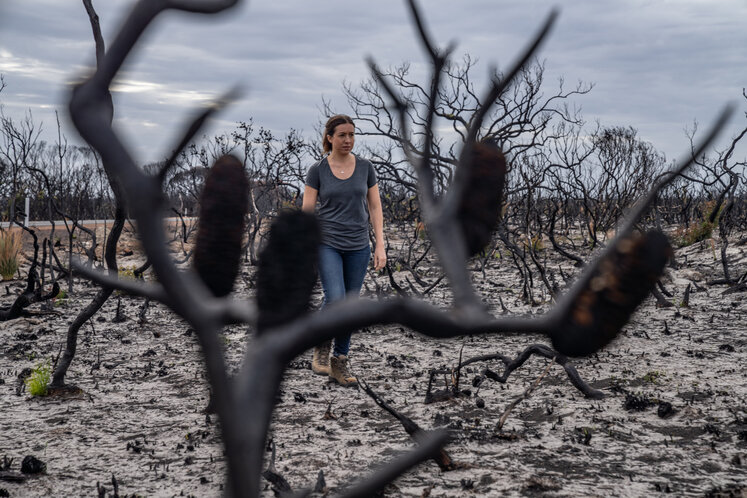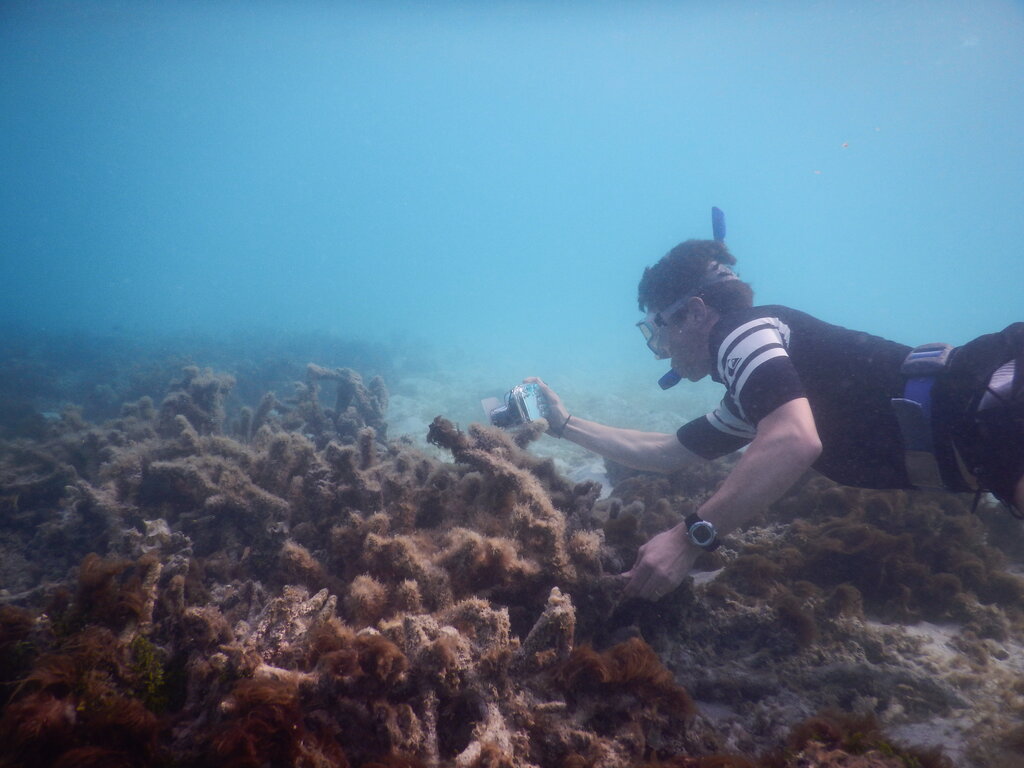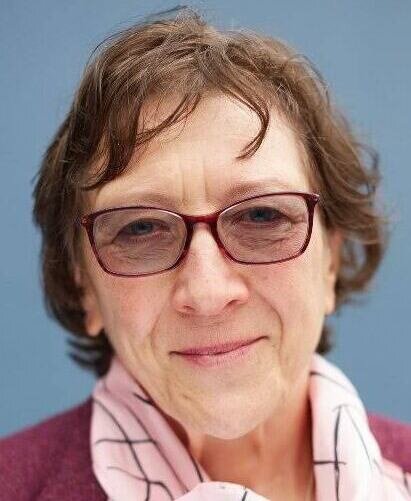
Front line scientists call for mental health support in the wake of catastrophic ecosystem loss
Better resourcing to combat the psychological effects of dealing with a crisis will reinforce good science.
15 March 2020
When ecologist Daniella Teixeira visited her bushfire-ravaged study site on Kangaroo Island, South Australia in February this year, the scale of the damage hit her hard.
Teixeira, an ecologist at The University of Queensland, Australia, felt numb and deeply sad as she set foot among the blackened trees and melted nest boxes that were once home to the black glossy cockatoos she studied during her PhD. The fires had burnt through one-third of the island since they started in December 2019.
“Going back to the sites where I did my research was the hardest thing,” says Teixeira. “It was like a graveyard.”
But Teixeira was unsure about where to seek support for the emotional toll she was experiencing. She was also discomfited to hear other researchers urging the community to focus on action instead of anxiety and sadness.
“It’s concerning that some people are creating yet another stigma around mental health,” says Teixeira. “Most conservationists got into this job because they love the natural world, so why shouldn’t we feel anything?”
Silent grief
At a time when climate change is exacerbating bushfires, bleaching coral reefs, and melting glaciers, many researchers are grappling with how to cope with the stress of working at the forefront of environmental catastrophes. The problem is, few people are talking about it, says Cristian Román-Palacios.
“These kinds of questions are never asked in science,” says Román-Palacios, an ecologist at The University of Arizona. “There’s not a lot of psychological support.”
In 2019, a group of marine scientists published a letter in Science calling for academic institutions to support the mental health of environmental scientists.

Tim Gordon
While mental health services are often provided for those working in healthcare, disaster relief and the military, specialized support for researchers who have been impacted by traumatic environmental events is lacking, the authors write.
They argued that training employees, debriefing after traumatic events, support from colleagues and supervisors, and counselling would help create a healthier working environment for scientists.
Steve Simpson, one of the letter’s coauthors, says he has seen some environmental scientists switch disciplines or leave science altogether due to a lack of support.
“The danger is losing good scientists because they just can’t take it,” says Simpson, a marine biologist at the University of Exeter, United Kingdom. He adds that allowing researchers to process their feelings of grief or distress will lead to better outcomes in the long run.
“The reputation of institutions depends on people doing good work,” says Simpson. “If we have mechanisms that help us look after each other, then we can do better science and keep fighting for what we think is important.”
No easy solution

Joseph Turp Photography
Although support groups are important for normalizing emotional responses to ecological loss, they are not a simple fix for the mental health challenges researchers may face, says Maggie Turp, psychologist and member of the Climate Psychology Alliance, an international group exploring mental health support strategies for climate scientists and activists.
In 2019, Turp ran a free support group for researchers and staff working at the London School of Economics’ Grantham Research Institute for Climate Change and the Environment for one term.
Climate scientists in the group said that dealing with hostile responses from the public when breaking ‘bad news’ and the pressure to remain objective were the most emotionally taxing aspects of their work.
But Turp also noticed that some researchers appeared less comfortable talking about their personal feelings in front of their boss and colleagues. Such professional hierarchies can create a “whole other level of complication that cuts through what you’re trying to do”, says Turp.
“This is something that needs to be considered when setting up support groups in departments,” says Turp.
Establishing larger groups with researchers from across different departments and institutions could be a solution, says Turp. “That way, you avoid having a closed circle of people working in the same place.”
While conversations about mental health support are becoming more widespread in the conservation community, Euan Ritchie says that institutions need to facilitate better work-life balance for researchers facing ecological devastation.
“One of the best things institutions can do is to simply allow people time to properly grieve and not place unfair work expectations on individuals,” says Ritchie, a wildlife ecologist at Deakin University in Australia. “I don't have many colleagues that aren't adversely affected in some way by what's happening to our natural world,”
For Teixeira, the bushfires have been a wake-up call to priortize self-care. She has also connected with likeminded conservationists through the Instagram account mind.mystory and Lonely Conservationists, a blog where researchers and other conservation workers can discuss their mental health.
“It helps to know that other people feel the same way and that I’m not alone in feeling these things,” says Teixeira.
